The Importance of Forklift Training

Forklift operator training is incredibly important for keeping workplaces safe and running smoothly. When forklift operators receive professional training, they learn how to use the equipment properly, which greatly reduces the chances of accidents and injuries. Training teaches them key safety practices, like how to load and unload goods correctly, which helps prevent damage to both the equipment and the items being moved. Well-trained operators can handle goods more efficiently, making the entire warehouse operation more organized and productive. In the end, having skilled operators means fewer problems and a smoother, safer work environment, making everyone's job a little bit easier and a lot more secure.
How to Train Good Forklift Operators.
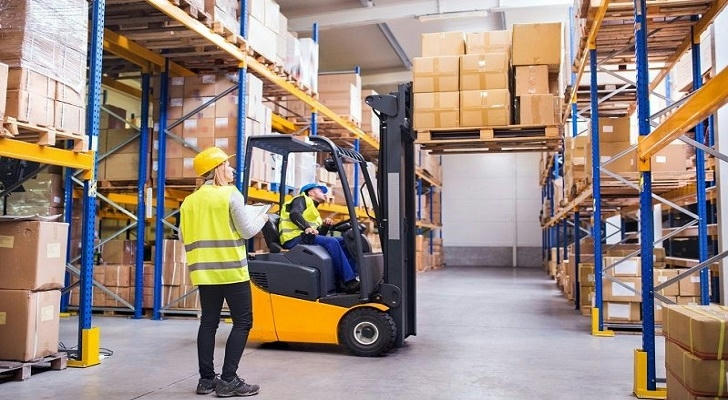
Training good forklift operators involves several key steps:
1. Comprehensive Training Program:
Develop a detailed curriculum covering forklift operation basics, safety protocols, maintenance, and emergency procedures.
2. Hands-On Practice:
Provide extensive practical training with different types of forklifts and various warehouse scenarios to build real-world skills.
3. Safety Emphasis:
Focus on safety practices, including proper load handling, safe maneuvering, and personal protective equipment use.
4. Regular Assessments:
Conduct periodic evaluations to assess skills and knowledge retention, ensuring operators can handle equipment safely and efficiently.
5. Certification and Recertification:
Ensure operators obtain proper certification and participate in refresher courses to stay updated on best practices and regulations.
6. Feedback and Improvement:
Offer constructive feedback and additional training as needed to address any performance gaps or safety concerns, These steps help create skilled, safety-conscious operators who enhance workplace efficiency and safety.
What is the importance of forklift training.
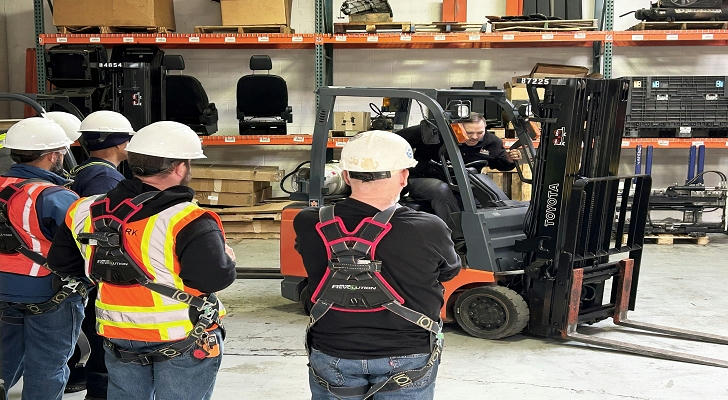
The importance of forklift training should not be overlooked, as it is directly related to safety and efficiency in the workplace.
Professionally trained forklift operators learn how to handle the equipment, safely and avoid common mistakes that can lead to accidents and losses. They are also taught the latest safety practices and technologies, which makes the warehouse run more smoothly and efficiently.
Thanks to this thorough training, accidents become much less likely, workers stay safer, and the entire workflow gets a lot better.
This means fewer problems, a safer environment, and a more organized and productive workplace.
Why forklift training is so important.
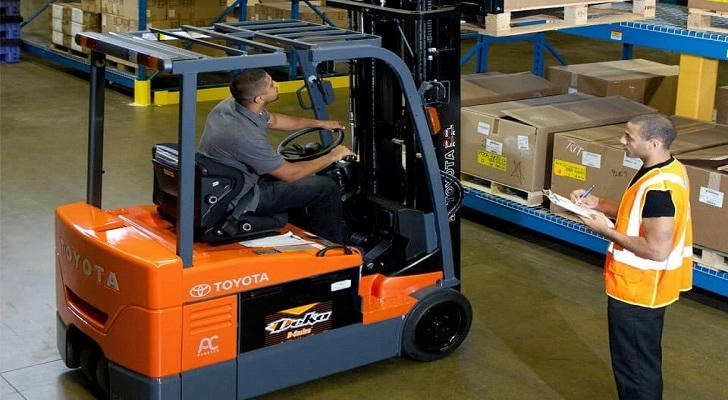
Forklift training is crucial for several reasons.
Safety: Proper training ensures operators understand safety protocols, reducing the risk of accidents, injuries, and damage to property.
Efficiency: Skilled operators can handle forklifts more effectively, improving warehouse operations and productivity.
Compliance: Training ensures adherence to legal regulations and industry standards, avoiding potential fines and legal issues.
Equipment Longevity: Proper use and maintenance extend the lifespan of forklifts, reducing repair costs and downtime.
Risk Management: Trained operators are better equipped to handle emergencies and unexpected situations safely. Investing in comprehensive forklift training safeguards employees, enhances operational efficiency, and maintains compliance with safety regulations.
What happens when forklift personnel are not well trained Please give some simple examples.
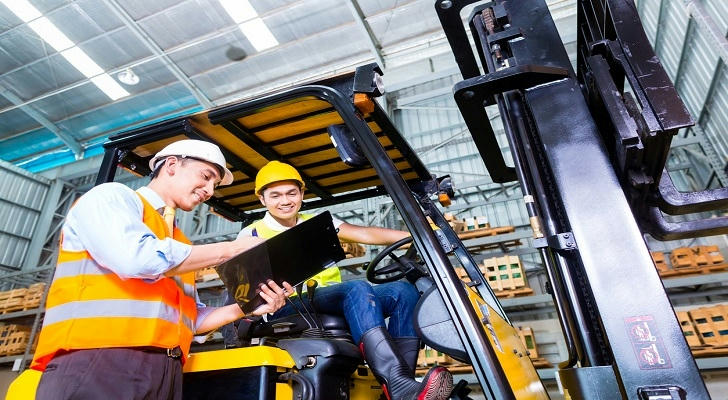
Accidents: Operators might cause collisions or tip the forklift over due to poor handling. For example, they may make sharp turns too quickly, leading to a tip-over.
Cargo Damage: Improper handling can damage goods. For instance, incorrectly stacking pallets may result in items falling or breaking.
Equipment Damage: Misuse can lead to forklift wear and tear. An untrained operator might overload the forklift, causing mechanical issues.
Injury: Safety hazards increase, such as accidents where operators may injure themselves or others, like not using the seatbelt properly.
Regulatory Fines: Non-compliance with safety standards can lead to fines. For example, failing to follow OSHA regulations can result in costly penalties.
What Great Forklift Operators Bring to the Table.
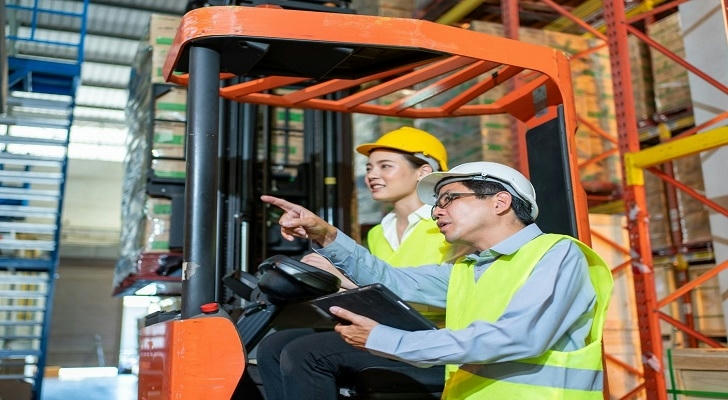
Great forklift operators bring several valuable qualities to the table.
Safety Awareness: They prioritize safety by adhering to protocols, performing regular inspections, and using proper equipment, minimizing accidents and injuries.
Efficiency: Skilled operators handle forklifts with precision, optimizing load handling and reducing turnaround times, which boosts overall warehouse productivity.
Attention to Detail: They are meticulous in load management, ensuring correct stacking and placement to prevent damage and maintain inventory integrity.
Problem-Solving Skills: Great operators can quickly identify and resolve issues, such as adjusting to unexpected obstacles or addressing minor equipment malfunctions.
Compliance: They understand and follow safety regulations and company policies, ensuring legal compliance and avoiding potential fines.
Teamwork: Effective operators communicate well with other warehouse staff, coordinating tasks to streamline operations and enhance team efficiency.
Maintenance Knowledge: They are familiar with basic forklift maintenance, helping to keep the equipment in good working condition and extending its lifespan
Discuss the difference between a forklift operator experiencing and not experiencing training.
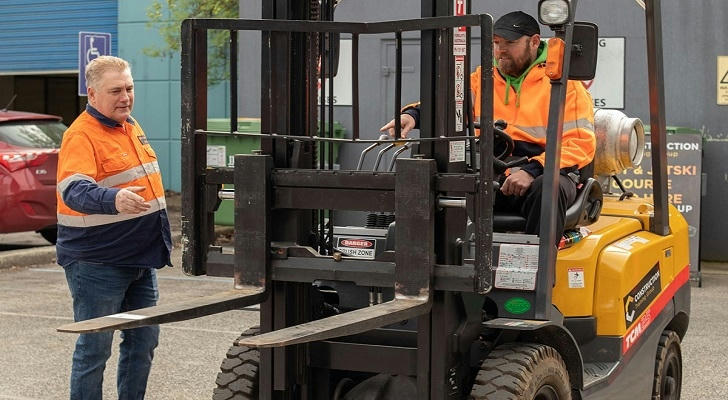
The difference between a trained forklift operator and someone who hasn't been trained is huge.
Imagine two operators at work: one is a confident, skilled professional who navigates the forklift through tight spaces with ease, handles loads expertly, and always follows safety rules. They know the forklift inside and out and keep it in top shape with regular maintenance.
Now, think of the untrained operator who struggles with basic controls, making clumsy movements and slowing down the workflow. They might miss important safety steps, raising the risk of accidents and damage. Small issues with the forklift can gounnoticed, leading to bigger problems later.
Ultimately, the trained operator keeps things running smoothly and safely, while the untrained one faces more frequent hiccups and slower progress. This clear difference shows why investing in proper forklift training is essential for a safer, more efficient workplace.
In summary, forklift training is vital for every warehouse:
Forklift training does more than just make the workplace safer and more efficient it also helps your equipment last longer, keeps you compliant with regulations, and boosts your team' s overall skills. Think of it as a smart investment in your company' s future. In the fast-moving logistics industry, thorough training ensures that every forklift operator is at their best, which in turn helps your business run smoothly and stay competitive. By investing in training, you' re giving your organization a strong advantage and setting the stage for long-term success.
Real-Life Examples Highlighting the Importance of Forklift Training.
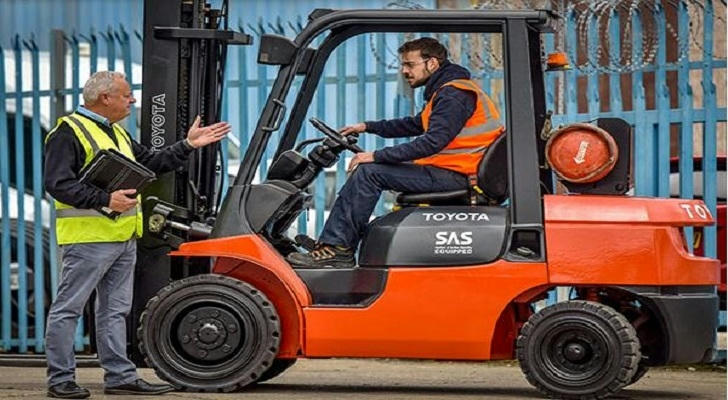
1. Case Study: Fewer Injuries and More Productivity.
Background: ABC Warehouse had a lot of accidents and slow work before they started systematic forklift training. Once they implemented the training, the change was dramatic.
Data:
Injury Rate Drop: In the first year after training, the number of injuries fell by 65%, from 3. 5 per thousand hours worked to just 1. 2.
Boosted Productivity: Efficiency went up by 20%, and the warehouse was able to process 15% more orders each day.
2. Case Study: Cutting Maintenance Costs.
Background: XYZ Logistics faced high repair costs because untrained operators frequently damaged forklifts. They decided to start professional training for all their operators.
Data:
Lower Repair Costs: Maintenance expenses dropped by 40%, from $20,000 a year to $12,000.
Longer Equipment Life: The forklifts lasted 30% longer, from 5 years to 6.5 years.
3. Case Study: Avoiding Fines and Staying Compliant.
Background: DEF Company kept getting fined for not following forklift safety rules. They introduced thorough training to fix this issue.
Data:
Fines Reduced: Fines dropped by 87%, from $15,000 a year to just $2,000.
Better Compliance: Their safety compliance improved from 70% to 95%.
4. Case Study: Happier Employees and Lower Turnover.
Background: GHI Warehouse had high employee turnover and low morale. After rolling out forklift training, things took a turn for the better.
Data:
Reduced Turnover: Employee turnover fell by 60%, from 25% to 10% within a year.
Increased Satisfaction: Employee satisfaction went up from 70% to 85%.
5. Case Study: Fewer Accidents.
Background: JKL Company was struggling with frequent forklift accidents. Training made a significant difference.
Data:
Accidents Cut Down: The number of accidents dropped by 72%, from 18 a year to just 5.
Insurance Savings: Insurance costs decreased from $30,000 to $20,000 annually.
These real-life examples show just how powerful forklift training can be. It not only makes workplaces safer and more efficient but also saves money, reduces accidents, and boosts employee morale. Investing in training isn't just about safety it's about making your business run better and setting it up for long-term success.
